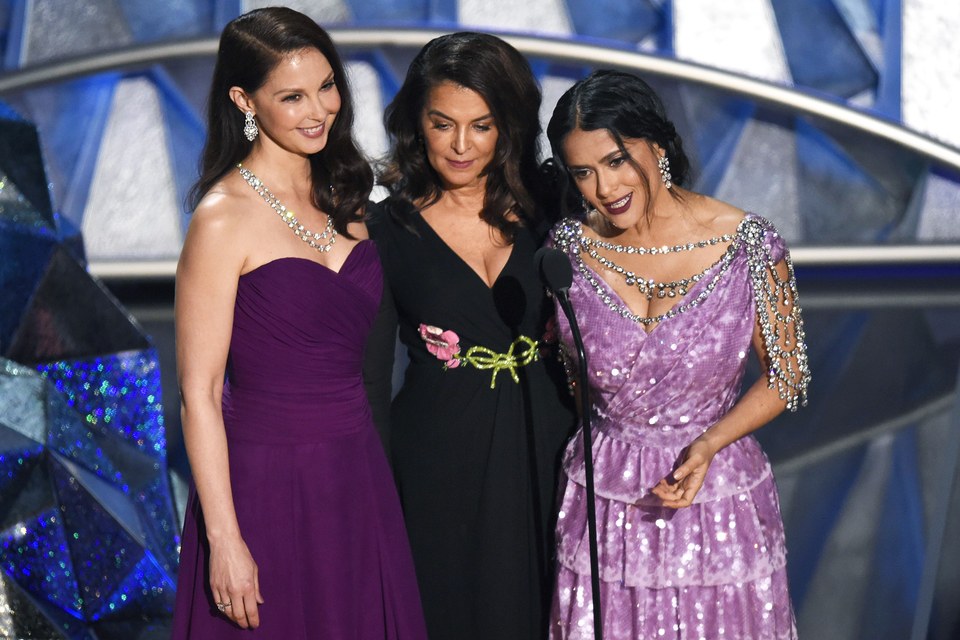Following one of the most political Academy Awards ceremonies, and indeed awards seasons, in history, questions are being asked about whether we should be politicising award ceremonies and looking to celebrities to make statements about the political landscape.
One of the movements at the forefront of the Oscars was the Time’s Up campaign. The campaign developed following many accusations against Harvey Weinstein of sexual harassment and assault on women in the industry. Three of Weinstein’s accusers – Ashley Judd, Annabella Sciorra, and Salma Hayek – took to the stage to describe the Time’s Up and #MeToo movements, before presenting a film featuring some of the leading figures of the movement including Mia Sorvino, Greta Gerwig, and Jordan Peele. The Time’s Up movement has so far made $21 million; it would not be so high without the publicity it has received from awards ceremonies that have championed the cause.
The involvement of the campaign in awards ceremonies has not come without criticism. Rose McGowan, one of the first to accuse Weinstein of sexual assault, was particularly critical of the black dress code at the 2018 Golden Globes in January. McGowan called the participants out for using the statement as ‘a Band-Aid to make yourselves feel better for what you’ve all known about, and been silent witnesses or participants in.’
Many people are, however, defensive of the movement’s involvement in award ceremonies. For Shonda Rhimes, creator of Grey’s Anatomy and Scandal, the movement is bigger than what you see on the TV: ‘It’s really important that you know that Time’s Up is not about the red carpet. Those women you saw on the red carpet representing Time’s Up are now off the red carpet working their butts off being activists.’
The increasingly political nature of the Oscars is reassuring that these people who are paid millions to entertain, do care about using their power and influence to do more than just that. In 2016, Leonardo DiCaprio used his Best Actor win for The Revenant to draw attention to an issue of climate change, a topic that he is extremely passionate about. Politicising the Oscars is not a new concept: Halle Berry used her 2002 Best Actress win for Monster’s Ball to make a statement about race, as she was the first black woman to win the award.
Celebrities are being given opportunities to draw awareness to political issues. People watching the Oscars or following the events may not be aware of the political landscape, or they simply do not care because of negative associations with traditional politics. If celebrities and pop culture can get through to these people, especially young people who have the most power to make a change, then that should be actively encouraged.
Although their job description is actor/entertainer and not politician, it does not mean they an uninformed or void of caring. Just like anyone else’s profession of teacher or artist or doctor does not define them and their influence. They have the power and capability to go beyond their primary role and there is no reason why they shouldn’t.
Eleanor Smith
Photo credit: Chris Pizzello/Invision/AP/REX/Shutterstock. Via https://www.vanityfair.com/hollywood/2018/03/oscar-2018-ashley-judd-salma-hayek-annabella-sciorra

